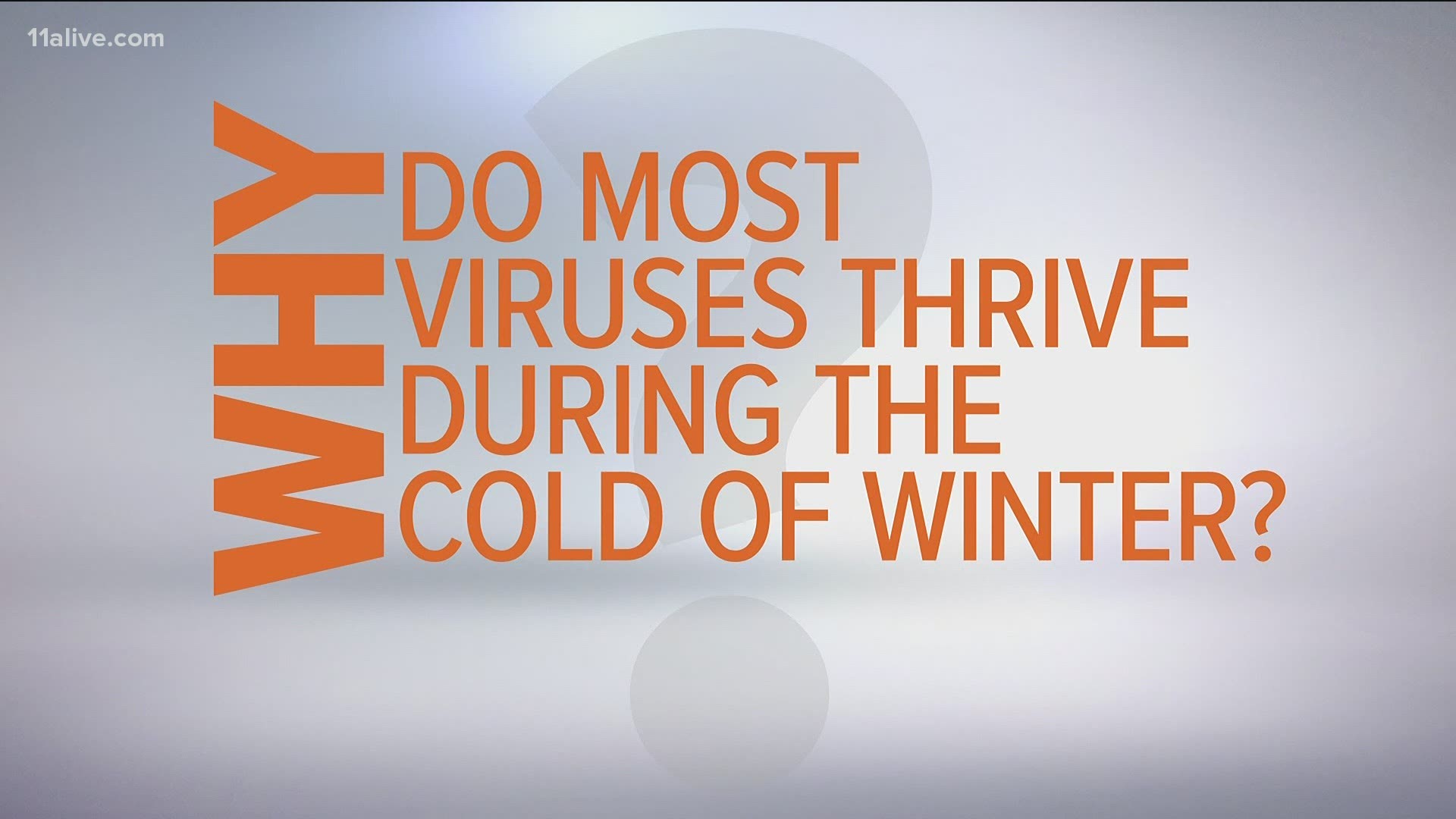ATLANTA — There’s another month left of winter, a time when the weather brings conditions that most viruses love.
Atlanta’s warmer temperatures will likely give way to another cold snap before winter ends. Most viruses thrive when the temperature drops. It’s a subject of intense study as scientists search for reasons why.
In the South, the saying each summer is “it’s not the heat it’s the humidity.”
For viruses, it’s the cold of winter and the humidity.
“In the winter months we have humidity going down and the viruses will remain viable longer, or remain suspended in the air longer,” said Dr. Mark Tompkins of the University of Georgia’s Center for Vaccines and Immunology.
There’s a sweet spot for viruses in terms of humidity. Scientists aren’t sure why, but if the humidity dips too low, it’s no longer helpful when it comes to a virus’ ability to transmit.
Ultraviolet light can damage a virus. The sun’s UV power is weakened during the winter due to the earth’s rotation and tilt providing a chance for a virus to flourish.
We also spend more time indoors during the winter where viruses have an easier time spreading.
Dr. Tompkins said while there’s no scientific proof, the cold may impact the outer shell of viruses like influenza and the coronavirus.
“As you reduce the temperature, the lipids move less, so maybe it does stabilize the virus,” he said. “I don’t have any specific evidence that it stabilizes the virus for it to last longer, but it’s not out of the question.”
It’s not like viruses disappear during the warmer months. The H1N1 swine flu thrived during the summer of 2009. Coronavirus cases grew last July and summer. Dr. Tompkins said it has more to do with the number of people who are either vulnerable or spreading illness.
He had this to say about our battle with COVID when spring and summer arrive:
“We’ll hopefully have fewer people shedding and fewer people susceptible. If we don’t vaccinate well, we’ll see it stay maybe at a lower level but it’s not going to go away.”
When it’s time to trade that jacket for a swim suit, it doesn’t necessarily mean it’s time to put the mask away.

